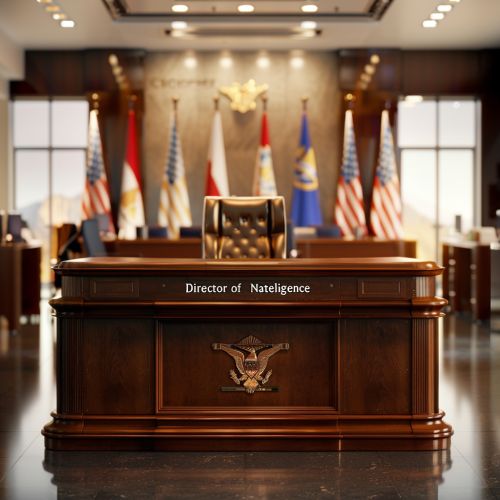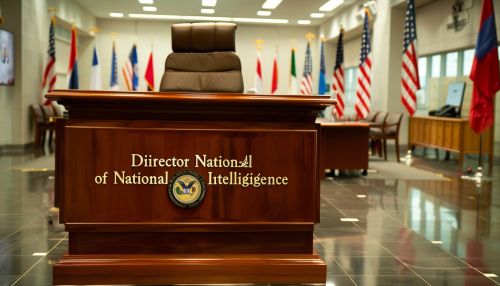Director of National Intelligence
Overview
The Director of National Intelligence (DNI) is a high-ranking official in the United States government, responsible for coordinating the nation's intelligence activities. The DNI serves as the principal advisor to the President, the National Security Council, and the Homeland Security Council for intelligence matters related to national security.


History
The position of Director of National Intelligence was created by the Intelligence Reform and Terrorism Prevention Act of 2004 as a response to the September 11 attacks. The Act aimed to improve the sharing of information among intelligence agencies and establish a single official to manage the intelligence community.
Responsibilities
The DNI has extensive responsibilities in the strategic oversight and leadership of the U.S. intelligence community. These duties include developing and implementing the National Intelligence Program, overseeing and directing the implementation of the National Intelligence Strategy, and ensuring effective coordination among the agencies within the intelligence community.
Appointment and Tenure
The Director of National Intelligence is nominated by the President and confirmed by the Senate. The DNI serves at the pleasure of the President and can be removed by the President at any time. There is no fixed term for the DNI, although the typical tenure is around 2-3 years.
Role in National Security
The DNI plays a crucial role in ensuring national security by providing the President and key policymakers with the intelligence they need to make informed decisions. The DNI also oversees the preparation of the President's Daily Brief, a top-secret document that provides the President with an update on significant global developments and security threats.
Relationship with Intelligence Agencies
The DNI oversees the coordination of the 17 agencies that make up the U.S. intelligence community. These include the CIA, the NSA, and the FBI, among others. The DNI ensures that these agencies operate effectively and share information as needed to protect national security.
Criticisms and Controversies
The position of DNI has been subject to various criticisms and controversies since its creation. Some critics argue that the DNI lacks the necessary authority to effectively coordinate the intelligence community, while others believe that the position adds an unnecessary layer of bureaucracy.
